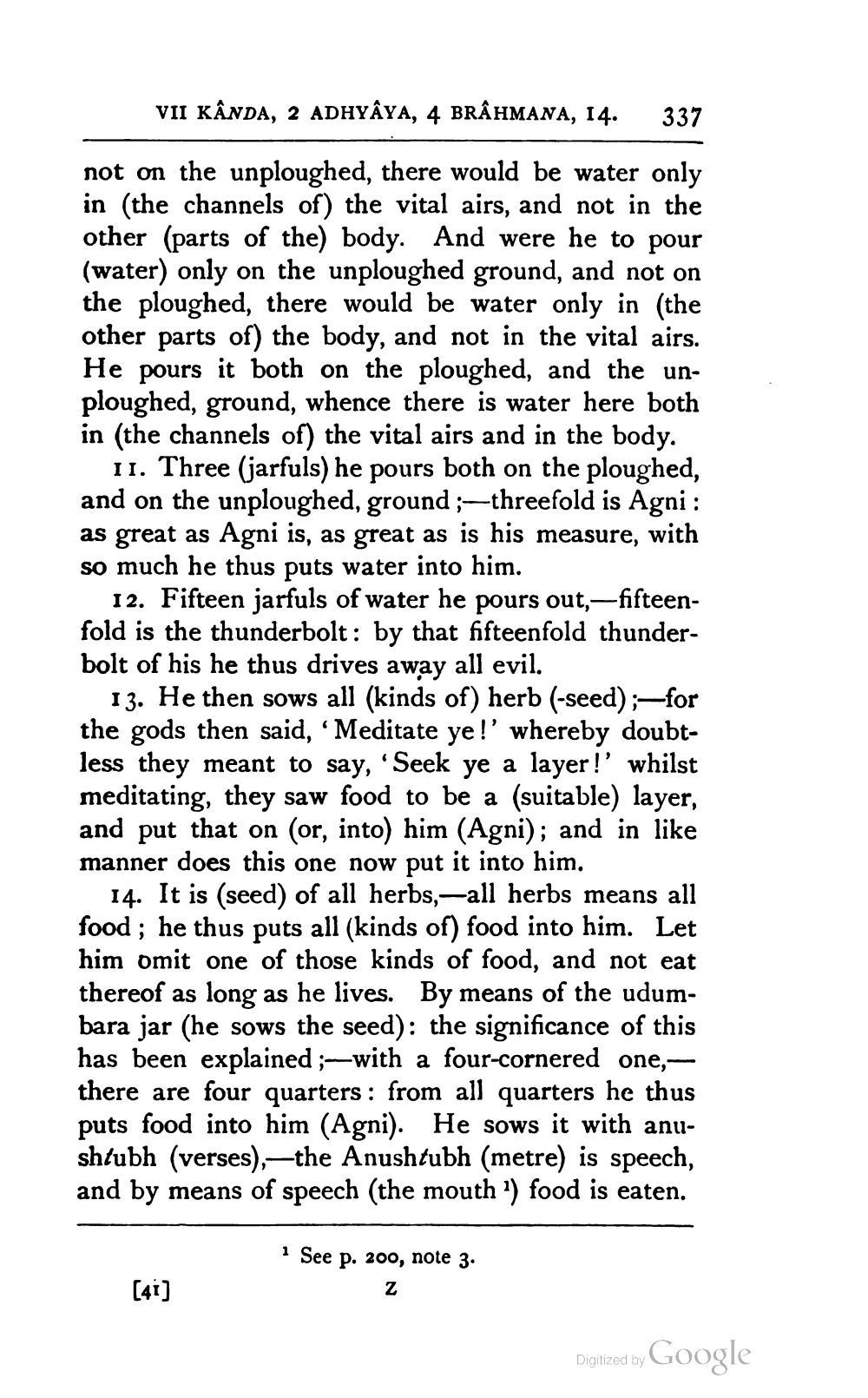________________
VII KÂNDA, 2 ADHYAYA, 4 BRAHMANA, 14.
337
not on the unploughed, there would be water only in the channels of) the vital airs, and not in the other (parts of the) body. And were he to pour (water) only on the unploughed ground, and not on the ploughed, there would be water only in (the other parts of the body, and not in the vital airs. He pours it both on the ploughed, and the unploughed, ground, whence there is water here both in (the channels of) the vital airs and in the body.
11. Three (jarfuls) he pours both on the ploughed, and on the unploughed, ground ;-threefold is Agni: as great as Agni is, as great as is his measure, with so much he thus puts water into him.
12. Fifteen jarfuls of water he pours out,-fifteenfold is the thunderbolt: by that fifteenfold thunderbolt of his he thus drives away all evil.
13. He then sows all (kinds of) herb (-seed) ;-for the gods then said, 'Meditate ye!' whereby doubtless they meant to say, 'Seek ye a layer!' whilst meditating, they saw food to be a (suitable) layer, and put that on (or, into) him (Agni); and in like manner does this one now put it into him.
14. It is (seed) of all herbs,-all herbs means all food; he thus puts all (kinds of) food into him. Let him omit one of those kinds of food, and not eat thereof as long as he lives. By means of the udumbara jar (he sows the seed): the significance of this has been explained ;-with a four-cornered one, there are four quarters : from all quarters he thus puts food into him (Agni). He sows it with anushtubh (verses),—the Anushtubh (metre) is speech, and by means of speech (the mouth ") food is eaten.
* See p. 200, note 3.
[41]
Digitized by Google




